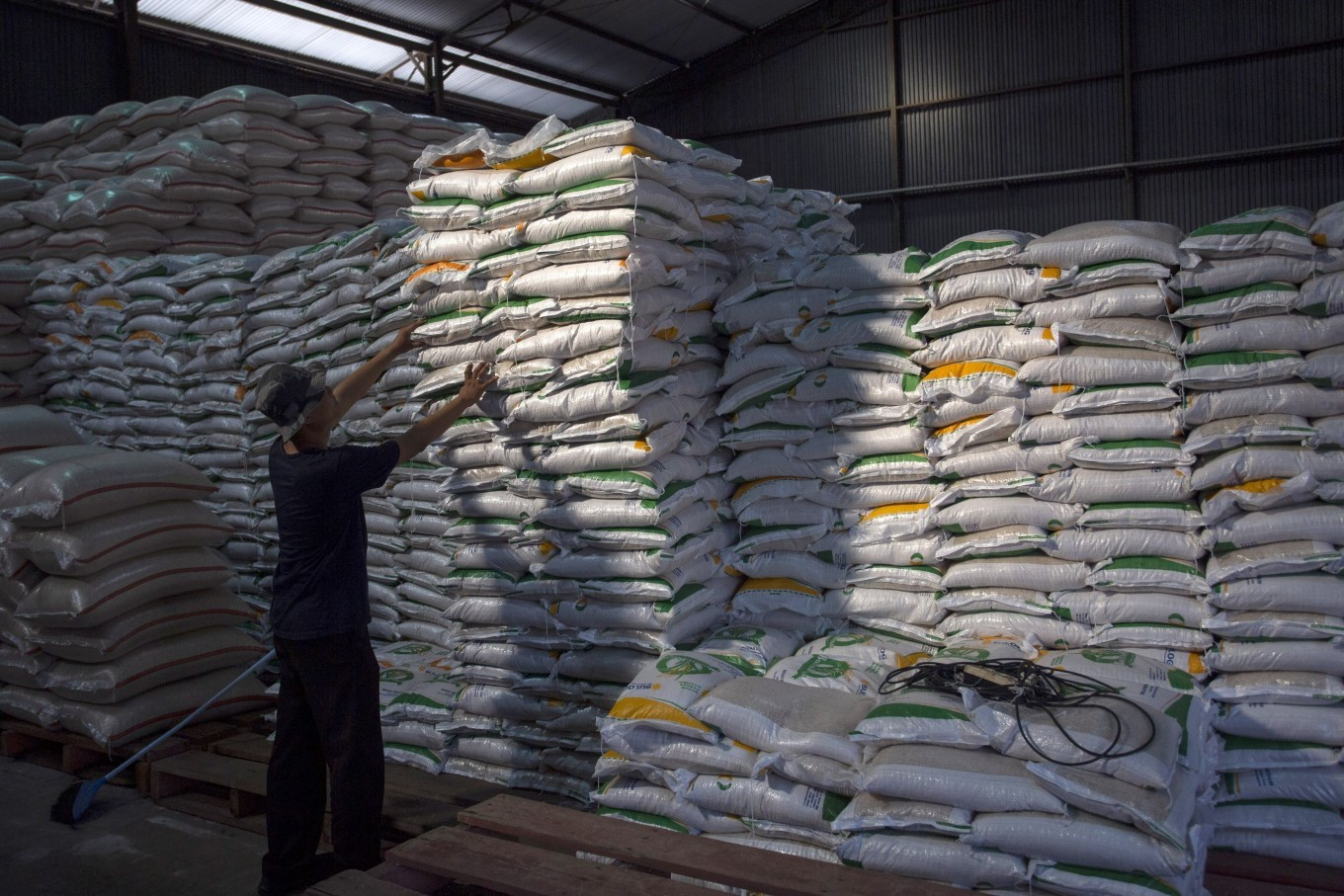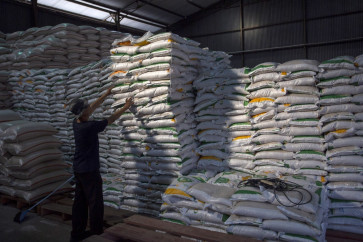Popular Reads
Top Results
Can't find what you're looking for?
View all search resultsPopular Reads
Top Results
Can't find what you're looking for?
View all search resultsAnalysis: Govt deploys military, police to stabilize unhusked rice prices
Change text size
Gift Premium Articles
to Anyone
 A worker tidies up a stack of locally produced rice at state food company Perum Bulog’s warehouse in Indramayu, West Java, on May 30, 2024. The company said that local rice supply as of early of May had reached 590,000 tonnes, and the production was expected to increase in June. (Antara/Dedhez Anggara)
A worker tidies up a stack of locally produced rice at state food company Perum Bulog’s warehouse in Indramayu, West Java, on May 30, 2024. The company said that local rice supply as of early of May had reached 590,000 tonnes, and the production was expected to increase in June. (Antara/Dedhez Anggara)
I
n an effort to stabilize rice production and prices, the Agriculture Ministry has enlisted the Indonesian Military (TNI) and the National Police to oversee the procurement of harvested dry unhusked rice (GKP) at a government-set price of Rp 6,500 per kilogram (30 US cents). This regulation on the Government Purchase Price (HPP) for unhusked rice took effect on Jan. 15, 2025.
The National Food Agency (Bapanas) issued Decision No. 2/2025 on Jan. 15, establishing the initial HPP framework, including provisions for price adjustments based on quality deductions, commonly referred to as "rafaksi." To safeguard farmers’ incomes, Agriculture Deputy Minister Sudaryono has tasked the TNI with ensuring that the government’s minimum HPP for dry unhusked rice is upheld.
Following a cooperative agreement signed on February 10 between the TNI and state-owned logistics agency Perum Bulog—just three days after Major General Novi Helmy Prasetya’s appointment as President Director—military personnel have been deployed to rice fields and Bulog warehouses. Their responsibilities include assisting in the collection and transportation of harvested crops to Bulog storage facilities. As part of the government’s strategy to stabilize supply and prices, Bulog has been directed to procure 3 million tons of domestically produced unhusked rice and rice.
Additionally, TNI soldiers, including village supervisory non-commissioned officers (Babinsa), are supporting Bulog’s rice procurement efforts by assisting with data collection from farmers intending to sell their harvests.
Beyond the military’s involvement, the Agriculture Ministry has also engaged the National Police to oversee rice mill purchases of dry unhusked rice, ensuring compliance with government regulations. This monitoring is crucial, as rice prices have recently fallen to approximately Rp 12,000 per kilogram, reflecting the decline in unhusked rice prices. This stands in stark contrast to January of last year, when rice prices surged to a record high of Rp 15,000–Rp 16,000 per kilogram.
Experts largely support the government’s decision to raise the minimum HPP for unhusked rice, citing its potential to improve farmers’ livelihoods. However, concerns remain over the absence of provisions for quality-based price adjustments in the new regulations. The policy sets a base price of Rp 6,500 per kilogram for dry unhusked rice at the farmer level, provided it meets specific quality standards—a maximum moisture content of 25 percent and a maximum impurity level of 10 percent. Grains failing to meet these standards are classified into lower-quality grades, such as grades 2 and 3, and are subject to prices below the established HPP. This raises concerns that Bulog, which absorbs unhusked rice regardless of quality, may experience a decline in rice yield efficiency.
To ensure access to affordable food ahead of Ramadhan and Idul Fitri this year, Agriculture Minister Amran Sulaiman plans to launch a large-scale market operation, distributing essential food commodities through 4,500 post office outlets nationwide. The initiative will begin with market operations at 325 PT Pos Indonesia locations—215 in Java and 110 outside Java—with plans to expand nationwide starting Mar. 1, 2025.


















